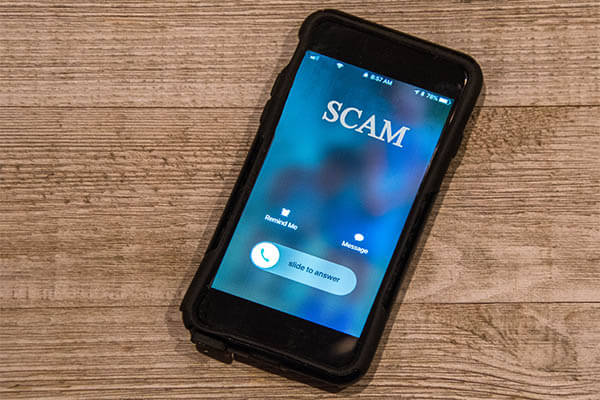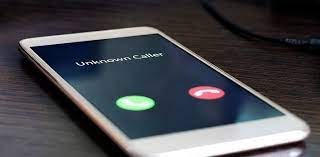Know Spam caller Name calling fixed line 0290694856 , (02) 9069 4856 , +61290694856 in Sydney, Australia
0290694856
0290694856 who called me from : our phone numbers have become a gateway for communication, but they’ve also become vulnerable to unwanted calls and privacy invasions. One common dilemma is receiving calls from unknown numbers, which can be anything from a telemarketer to a potential important contact. we’ll explore the challenges associated with unknown callers, discuss strategies to protect your privacy, and offer insights into how to manage unwanted calls effectively.
1. The Annoyance of Unknown Callers
Unknown callers can be a major source of annoyance and inconvenience. They disrupt our daily routines, invade our personal space, and sometimes even pose security risks. Common scenarios include:
- Telemarketing calls: Unsolicited sales pitches can be both irritating and time-consuming.
- Scams and fraud: Some unknown callers may be attempting to deceive or defraud you.
- Missed opportunities: An important call from a new business contact or a job offer might be mistaken for an unwanted call.
2. Protecting Your Privacy
To protect your privacy and maintain peace of mind, there are several steps you can take:
- Use a call screening app: Many smartphones offer call screening features that can help filter out unwanted calls.
- Enable ‘Do Not Disturb’ mode: You can configure your phone to allow calls only from your contacts, reducing interruptions.
- Don’t answer unfamiliar numbers: If you don’t recognize the number, let it go to voicemail, and return the call if it’s important.
- Register on the Do Not Call list: In some countries, you can add your number to the National Do Not Call Registry to reduce telemarketing calls.
3. Dealing with Unknown Callers
While protecting your privacy is important, sometimes it’s necessary to deal with unknown callers. Here’s how you can handle such calls effectively:
- Check voicemail: Always listen to the voicemail message left by the caller. It might reveal the purpose of the call.
- Use reverse phone lookup services: Online tools and apps can help identify the owner of the number. However, these may not always be accurate.
- Return the call cautiously: If the voicemail seems legitimate, return the call, but be cautious and don’t share personal information.
- Block repeat offenders: If you consistently receive calls from the same number, consider blocking it.
4. Avoiding Phone Scams
Phone scams are a prevalent issue, with scammers employing various tactics to deceive individuals. Being aware of common scams and knowing how to recognize them is essential:
- The IRS scam: Scammers pretend to be IRS agents, claiming you owe back taxes and threatening legal action.
- Tech support scams: Fraudsters pose as tech support agents, claiming your computer has a virus and offering to fix it for a fee.
- Phishing calls: Scammers impersonate banks or other organizations, attempting to trick you into revealing sensitive information.
- Lottery and prize scams: Calls claiming you’ve won a lottery or prize but must pay a fee to claim it are usually fraudulent.
5. Reporting Unwanted Calls
Reporting unwanted and fraudulent calls can help authorities combat phone scams and telemarketing violations. In the United States, for instance, you can report such calls to the Federal Trade Commission (FTC). Many countries have similar agencies to handle these complaints.
6. Legal Protections
Understanding your legal rights is crucial when dealing with unwanted calls. Most countries have regulations in place to protect consumers from unwanted calls, including the Telephone Consumer Protection Act (TCPA) in the United States. Familiarizing yourself with these regulations can help you take appropriate action against persistent telemarketers and scammers.
7. The Future of Phone Privacy
The issue of unwanted calls is likely to persist in the future, but advancements in technology are also offering new solutions. Features like AI-powered call screening and robust spam call detection are becoming more common, helping individuals take control of their phone privacy.
8. Final Thoughts
In conclusion, while it’s challenging to identify unknown callers, there are numerous steps you can take to protect your privacy and deal with unwanted calls effectively. Staying informed, using call screening tools, and being cautious when returning calls can help you maintain peace of mind and reduce the annoyance associated with unknown callers. Additionally, reporting unwanted calls and understanding your legal rights can contribute to the ongoing battle against phone scams and telemarketing violations. The future holds promise for better solutions to phone privacy, but for now, staying informed and proactive is key to managing unknown callers .
FAQ
-
What is the significance of “0290694856” as a Caller ID?
The number “0290694856” appears to be a caller ID, but it does not follow the typical format of a North American phone number. It’s possible that this is an international number, a non-standard format, or even a spoofed number. You may need to investigate further or use a reverse phone lookup service to gather more information.
-
How can I identify a caller from an unfamiliar number like “0290694856”?
You can use the following methods to identify a caller from an unfamiliar number:
a. Reverse Phone Lookup: Use online reverse phone lookup services or mobile apps to search for information about the number. These services can provide details about the caller, such as their name, location, and whether it’s a known spam number.
b. Search Engines: Enter the number in a search engine like Google. Sometimes, you may find online discussions or reports related to the number.
c. Contact the Caller: If you’re comfortable doing so, you can return the call or send a text message to inquire about the caller’s identity.
-
Is it safe to answer calls from unfamiliar numbers?
While it’s generally safe to answer calls from unfamiliar numbers, exercise caution. Some calls from unfamiliar numbers may be spam or scams. If you answer a call and the caller asks for personal or financial information, be wary and avoid sharing sensitive data. Additionally, consider using a call-blocking app to filter out unwanted calls.
-
What are common reasons for receiving calls from unknown or unfamiliar numbers?
There are various reasons for receiving calls from unknown or unfamiliar numbers, including:
a. Telemarketing: Companies may call to promote their products or services.
b. Scams: Fraudsters often use fake numbers to deceive individuals into giving away personal information or money.
c. Wrong Numbers: Sometimes, people dial the wrong number and call you by mistake.
d. Robocalls: Automated systems may dial numbers for surveys, political campaigns, or advertising.
-
How can I block or report unwanted calls?
To block or report unwanted calls:
a. Use Call-Blocking Apps: Many smartphones have built-in features to block specific numbers. You can also download third-party call-blocking apps from your app store.
b. Register with the National Do Not Call Registry: In some countries, you can register your number with the national do-not-call registry to reduce telemarketing calls.
c. Report to Your Carrier: Contact your mobile carrier and report unwanted calls to see if they can help.
d. Report to Authorities: If you receive calls involving scams or fraudulent activity, consider reporting them to your local law enforcement or relevant authorities.





